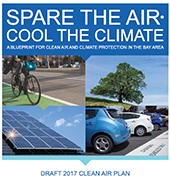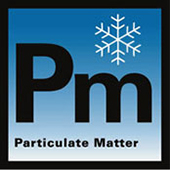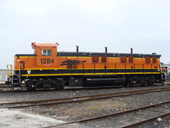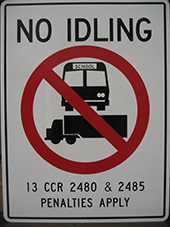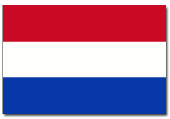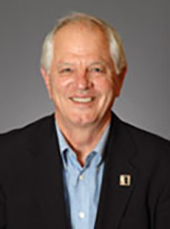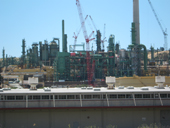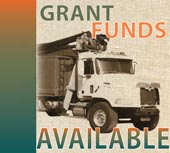|
|

|
|
|
|
February 2017 l Volume 2017-1
|
|
|
|
|
|
|
Welcome to the latest, freshly redesigned issue of the Bay Area Air District’s Air Currents newsletter. In this issue, you’ll find articles about the Air District’s efforts to “Spare the Air and Cool the Climate” with a new 2017 Clean Air Plan, about the Air District’s new proposed amendments and additions to its rule governing particulate matter, and about a new project to replace three older, highly polluting switcher locomotives in the Bay Area. Other articles cover funding for an anti-idling signage campaign, an agreement between the state of California and the Netherlands to encourage electric vehicles and smart mobility initiatives, signed at Air District headquarters, the honoring of board member Tom Bates with a Lifetime Achievement Award and a recent settlement with Valero. A summary of current grant opportunities is also included.
|
|
|
|
|
|
|
|
|
|
|
|
|
|
|
| | |
Spare the Air, Cool the Climate: Air District Releases Draft 2017 Clean Air Plan
|
|
In January, the Air District released its draft 2017 Clean Air Plan. A call to action to “Spare the Air and Cool the Climate,” it lays out a bold vision that addresses two key priorities: mitigating climate change and eliminating health disparities in communities throughout the Bay Area. The draft plan will serve as a blueprint for the Air District’s forthcoming efforts to reduce smog, dust and soot, toxic air pollutants and greenhouse gases and to achieve regional clean air and climate protection goals. The actions recommended in this plan will allow the Bay Area to provide leadership in the months and years ahead, improving the quality of life in the region and in the process ushering California and the rest of the nation toward a sustainable, clean air future.
The draft document outlines more than 85 measures that will guide the Bay Area in:
- Developing a region-wide approach to reducing health risk and air pollution from many sources comprehensively
- Reducing health risk from acute air pollution
- Finding strategies to reduce methane and fossil fuel pollution
- Limiting greenhouse gases and other air pollutants from refineries
- Providing helpful guidance and research to enable local governments to reduce energy in buildings, reduce waste and create clean air communities
- Working with the Metropolitan Transportation Commission and local governments to reduce vehicle miles traveled throughout the Bay Area
- Partnering with energy providers and the public to find ways to transition to renewable energy sources
- Continuing to provide funding to encourage more electric vehicles and electric vehicle charging stations
The Air District will host eight open houses throughout the region, from January 30 through February 8, to provide information about the draft 2017 Clean Air Plan, answer questions and take comments. Check for dates and locations on our Plans Under Development webpage.
We invite your review and comment on the draft 2017 Clean Air Plan. Email your comments to cleanairplan@baaqmd.gov. The public comment period runs from January 10 through March 9.
Following public comments, the plan and the accompanying Environmental Impact Report will be updated and revised in February and March. The final Spare the Air - Cool the Climate 2017 plan is scheduled for an Air District board hearing in April.
|
|
|
|
|
|
|
|
|
|
|
|
|
| | |
Air District Proposes Changes to Particulate Matter Rules
|
|
The Air District is proposing amendments and additions to Regulation 6, which governs particulate matter emissions from various commercial and industrial operations.
Regulation 6, Rule 1, was last amended in December 2007. The new draft amendments to Rule 6-1 will bring it up to date with California’s strictest particulate matter requirements. The Air District has also drafted several new rules to address certain specific sources of particulate matter. These new draft rules will address particulate matter emissions from dirt and other solid materials that are tracked out onto roadways, from roofing asphalt and from storage and handling of bulk materials. The Air District has also drafted a new umbrella regulation for all particulate matter rules to provide a consistent set of general provisions, definitions and test methods.
The amendments and additions involve the following rules:
- Amendments to Rule 1: General Requirements
- New Regulation 6: General Provisions, Definitions and Test Methods
- New Regulation 6, Rule 6: Prohibition of Trackout
- New Regulation 6, Rule 7: Roofing Asphalt
- New Regulation 6, Rule 8: Bulk Material Storage and Handling
The Air District estimates that several hundred facilities may be subject to these proposed rules.
A series of open houses/workshops are being held from January 30 through February 8 in San Mateo, San Francisco, Marin, Napa, Contra Costa, Alameda, and Santa Clara counties. These open houses will also feature displays and information about the Air District’s 2017 Clean Air Plan.
At the open houses, you can hear about the proposed rules, review material, speak with Air District staff, ask questions, and offer comments. You can also submit public comment electronically, by contacting Guy A. Gimlen, Principal Air Quality Engineer, at ggimlen@baaqmd.gov. Comments must be submitted by Friday, March 3, 2017.
More information and supporting materials, including the draft staff report, can be found on the Air District's website, on the Regulatory Workshops page and a page summarizing the proposed Regulation 6 changes.
The Air District anticipates releasing proposed rule language, a staff report, a socioeconomic analysis, and the CEQA Environmental Impact Report in Spring 2017. The agency expects that a proposed final draft will be presented to the Air District's Board of Directors for approval in Summer 2017.
|
|
|
|
|
|
|
|
|
|
|
|
|
|
| | |
Air District Funds Cleaner Switcher Locomotives
|
|
In December, the Air District announced that it is moving forward with a project to replace three older, highly polluting diesel switcher locomotives in the Bay Area.
Two of the locomotives are owned and operated by the Richmond Pacific Railroad Corporation, and one is owned by the Port of San Francisco and operated by San Francisco Bay Railroad. Diesel particulate matter pollution is a serious health concern in and around railyards. By funding a change to the latest available technology, the Air District aims to significantly reduce the health impact to local neighborhoods.
In 2013, the Air District and its partners worked to test and certify the first switcher locomotive in the nation that was designed and built for Richmond Pacific Railroad to meet U.S. EPA Tier 4 emission standards. New switcher locomotives using this technology are now commercially available, with engines that are about 90 percent cleaner than the equipment currently in service.
Switchers are locomotives used for assembling and disassembling railcars, moving railcars around railyards and transferring railcars to and from regional carriers. Switchers are heavily used and usually powered by a diesel engine that emits substantial amounts of pollution into the air.
The locomotives being swapped out under this funding project were built in 1945, 1955 and 1965, respectively. They will be replaced by latest generation switcher locomotives that integrate sophisticated advances in engine and emission-control technologies. The new locomotives are scheduled to begin service in 2018.
This project will be implemented with $1,420,263 in U.S. EPA Diesel Emission Reduction Act grant funding, combined with $4,278,662 in matching funds from the railroad owners and California Proposition 1B Goods Movement Bond funds, administered locally by the Air District.
This collaborative effort will achieve significant emission reductions in the most highly impacted communities in the Bay Area.
|
|
|
|
|
|
|
|
|
|
|
|
|
|
| | |
Air District and CARB Fund Bayview Anti-Idling Signage
|
|
In January, the Air District and partners unveiled the installation of anti-idling street signage in the area surrounding the San Francisco Wholesale Produce Market, a major center for the regional distribution of produce located in the Bayview community, a neighborhood heavily impacted by truck exhaust and industrial pollution. Twenty-two signs have been installed across the Bayview neighborhood. Representatives of the Air District, the California Air Resources Board, the San Francisco Wholesale Produce Market, and Greenaction for Health and Environmental Justice, along with neighborhood residents, marked the occasion as the next step in a longstanding campaign to reduce air quality impacts from truck exhaust in the neighborhood.
Bayview Hunters Point is an historically industrial area with a mix of residential areas located next to the Port of San Francisco and alongside two major freeways.
Idling diesel engines create toxic air pollution, contribute to global warming and waste fuel. Diesel exhaust was declared a toxic air contaminant by the California Air Resources Board in 1998. It is harmful to respiratory health, particularly in children and the elderly. Multiple studies connect diesel air pollution to asthma, premature death, lung cancer and other health conditions.
The state’s anti-idling regulation, adopted in 2004, generally prohibits idling for more than five minutes. It applies to heavy-duty vehicles with a Gross Vehicle Weight Rating of 10,000 pounds or more. Enforced locally by the Air District, fines range from $300-$1000 per day and owners can now be responsible for citations issued to drivers of their vehicles.
|
|
|
|
|
|
|
|
|
|
|
|
|
|
| | |
Air District Hosts International EV and Smart Mobility Pact Signing Ceremony
|
|
On January 9, the Air District hosted an historic signing ceremony, as the state of California and government of the Netherlands agreed to “go Dutch” on an initiative to spur electric vehicle use and smart mobility. Smart mobility refers to multi-modal transportation planning that contributes to reduced emissions, traffic congestion and fuel consumption.
Henk Kamp, Dutch Minister of Economic Affairs, and Panorea Avdis, Director of the California Governor’s Office of Business and Economic Development, delivered keynote speeches in front of 150 delegates from 100 Dutch and California businesses, and then signed a Letter of Intent confirming a $21 million Business Fund to be used to support electric vehicle technology and smart mobility policy development.
Under the agreement, the Dutch Ministry of Economic Affairs will provide 10 million Euro, or $10.5 million dollars, for a venture capital fund that will be matched by private Dutch investors.
The State of California’s GO-Biz Program will facilitate access to the Small Business Loan Guarantee Program for intermediary development corporations, banks and Californian and Dutch businesses active in smart and e-mobility.
Fund investments will contribute to economic development and job growth in both California and the Netherlands, each of whom are committed to pursuing stringent climate action programs to meet greenhouse gas reduction and sustainable energy generation goals.
|
|
|
|
|
|
|
|
|
|
|
|
|
|
| | |
Air District Honors Former Berkeley Mayor Tom Bates with Lifetime Achievement Award
|
|
At its December 7 Board of Directors meeting, the Air District celebrated the exceptional public service of outgoing Board Director and former Mayor of the City of Berkeley, Thomas H. Bates, by presenting him with a Lifetime Achievement Award. This Lifetime Achievement Award was the first of its kind issued by the Air District in a series intended to honor the distinguished careers of those serving to improve air quality and protect the climate for all residents of the Bay Area.
Throughout his decades of leadership and service in air quality, Mayor Bates has been a champion of clean air, public health and climate protection whose environmental and climate-focused achievements have not only benefited the Bay Area, but extended far beyond its borders.
Bates dedicated his life to public service, assisting Bay Area residents in a variety of elected leadership positions, including four years as an Alameda County Supervisor, two decades as a California legislator and fourteen years as Mayor of Berkeley. He has advocated for clean public transit solutions in the region, faithfully using public transit and walking regularly. He served on the board of the Bay Area Air Quality Management District from 1973 to 1976 and from 2006 through 2016, acting as Chair of the Board of Directors in 2011.
During his career, he also served on the boards of the Metropolitan Transportation Commission, Bay Conservation and Development Commission, Joint Powers Commission and the Association for Bay Area Governments. He championed progressive environmental policies and worked closely to coordinate long-range transportation, land-use and housing plans that support economic growth and reduce air pollution. While serving in the California State Assembly and representing the East Bay from 1976 to 1996, Bates authored 220 bills that became law, with a 100 percent environmental voting record.
In 2002, Bates was first elected Mayor of Berkeley and built a notable record of environmental and climate-action achievements which served as a model for other cities to emulate. Under his leadership, Berkeley became the first city in the country to adopt a voter-approved greenhouse gas emissions reduction target of 80 percent by 2050. Bates demonstrated national leadership by launching BerkeleyFirst, the first-ever property-assessed clean energy program, which became a model replicated across the country.
A dedicated supporter of alternatives to driving, a strong advocate for public transportation and an avid walker, Mayor Bates has been a hero of the environment and clean air for more than 40 years.
|
|
|
|
|
|
|
|
|
|
|
|
|
|
| | |
Air District Settles Case with Valero Refining Company
|
|
In October, the Air District announced that Valero Refining Company agreed to pay $249,000 to settle violations at its refinery in Benicia.
This settlement covered 29 notices of violation issued to the company for instances of non-compliance with air quality regulations that largely occurred in 2013. The violations that led to this settlement have been corrected. Four significant violations involved errors in an inspection database that resulted in missed leak inspections for valves omitted from the database. Another involved the opening of a tank to the atmosphere without first conducting required degassing.
Nine notices were issued for brief violations of emission limits: with eight detected by monitors that continuously measure emissions from refinery equipment, and one discovered by a source test conducted by the facility. Six were for minor hydrocarbon leaks from storage tanks, and nine involved late reports or other administrative violations.
All settlement funds will be used for Air District activities such as the inspection and enforcement actions that led to this settlement.
|
|
|
|
|
|
|
|
|
|
|
|
|
|
| | |
Air District Offers Millions in Grants
|
|
Carl Moyer Program - Funding is available for the upgrade or replacement of diesel engines and equipment, including trucks, off-road equipment, marine engines, locomotives and agricultural equipment. Applications are being accepted on a first-come, first-served basis until all funds are awarded. www.baaqmd.gov/Moyer Voucher Incentive Program - Funding is available for diesel truck replacements and retrofits. Applications are being accepted on a first-come, first-served basis until all funds have been allocated. www.baaqmd.gov/VIP
Lower-Emission School Bus Program - Funding is available for compressed natural gas school bus tank replacements. www.baaqmd.gov/LESBP
Goods Movement Program - Applications will be accepted in early 2017 for the upgrade or replacement of the following types of freight movement equipment: diesel trucks/engines, transportation refrigeration units, cargo-handling equipment, and locomotives. www.baaqmd.gov/goods
Open! Electric Vehicle Charging Station Program - Funding is available to projects that will deploy new, qualifying electric vehicle charging stations at transportation corridors, workplaces, multi-family-unit dwellings, park and rides, and key destinations. www.baaqmd.gov/charge
Open! Residential Wood Smoke Reduction Incentive Program - Funding is available to eligible Bay Area homeowners and landlords to help offset a portion of the cost to replace older, more highly polluting fireplaces or wood-burning stoves with qualifying cleaner qualifying heating devices, including electric heat pumps, and natural gas or propane heating stoves and inserts. Funding is also available to help homeowners decommission their working fireplaces and wood stoves by permanently taking them out of service. This program is currently accepting applications from homeowners that meet at least one of the following Highly Impacted Resident criteria: 1) participation in a qualifying low-income assistance program, 2) home is located in designated high-wood-smoke area, and 3) homeowner has previously received an exemption from the Air District for having a wood-burning device as their sole source of heat. www.baaqmd.gov/woodsmokegrant
Solicitations for the following project types are scheduled to open later this year:
Heavy-Duty Zero-Emissions Vehicles – Funding will be available to both public and non-public entities who purchase or lease qualifying new zero-emissions heavy-duty trucks and buses. www.baaqmd.gov/HDZEV
Plug-In Electric Vehicles (public agencies only) – Funding will be available to public agencies who purchase or lease qualifying zero- and partial zero-emissions light-duty cars, neighborhood electric vehicles and motorcycles. www.baaqmd.gov/grant-funding/public-agencies/pev-rebate
Bikeways (public agencies only) – Funding will be available to public agencies that construct or install qualifying new bikeways that support safe biking and walking and support a reduction in motor vehicle trips. www.baaqmd.gov/grant-funding/public-agencies/bikeways-roads-lanes-paths
|
|
|
|
|
|
|
|
|
|
|


